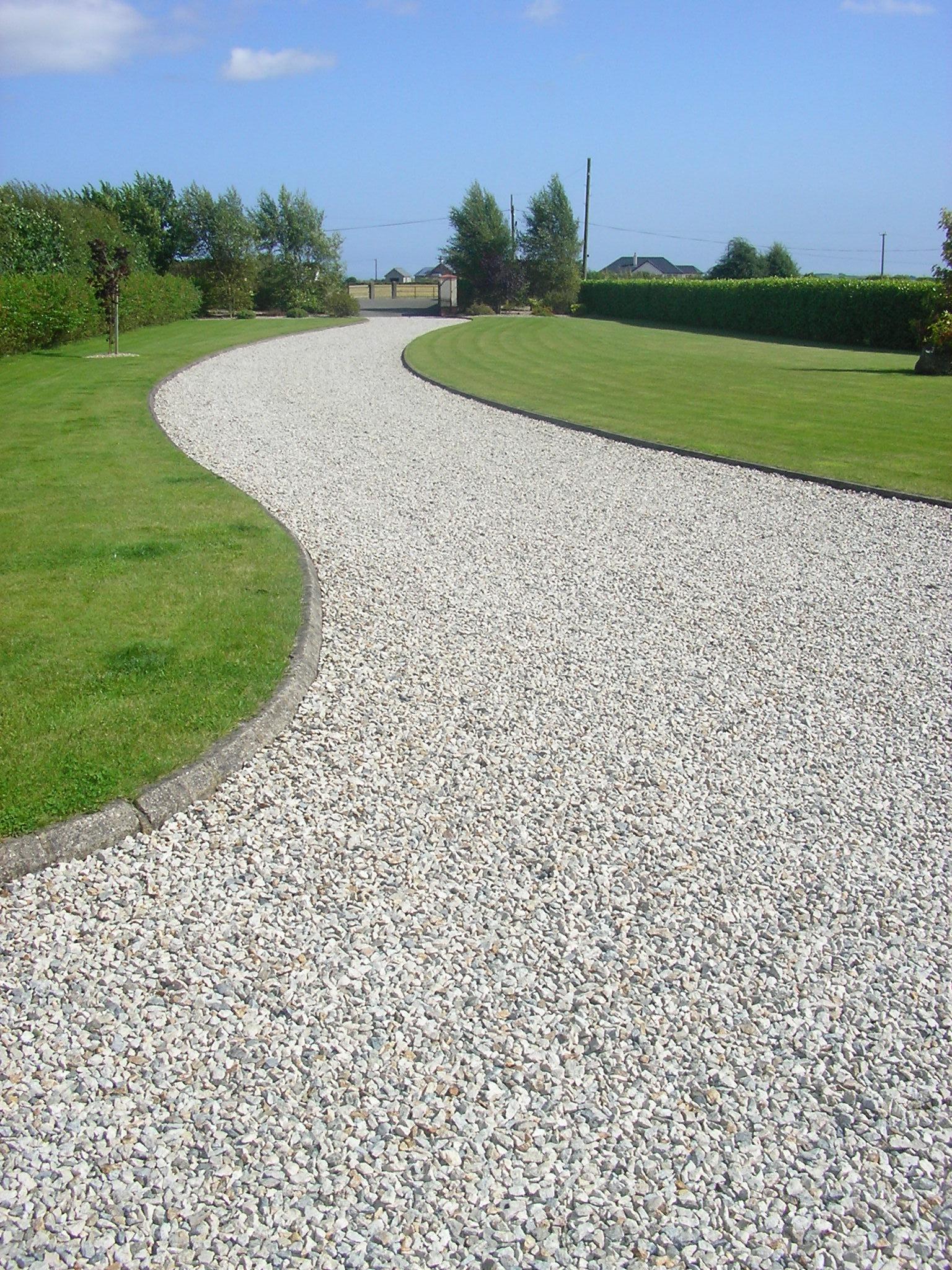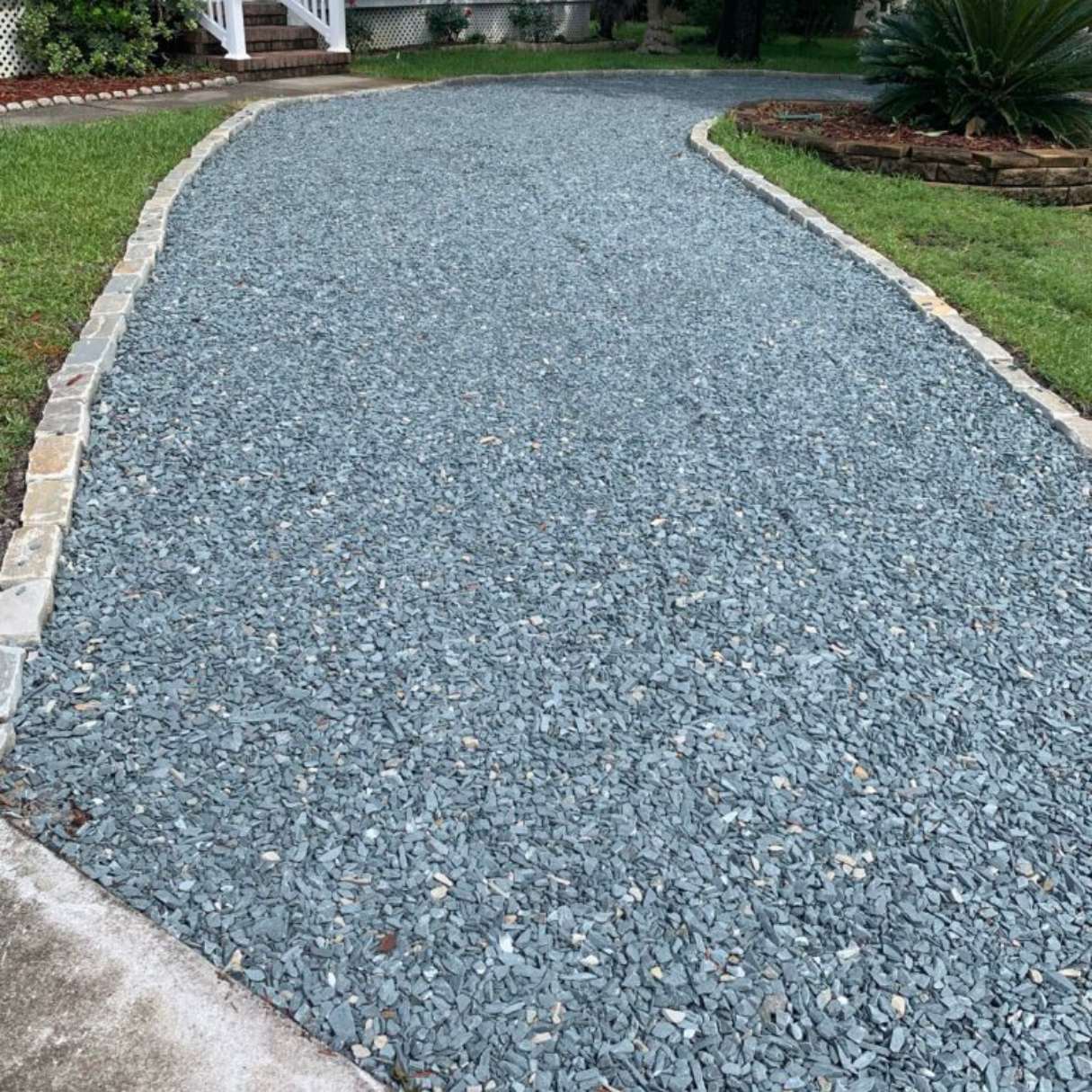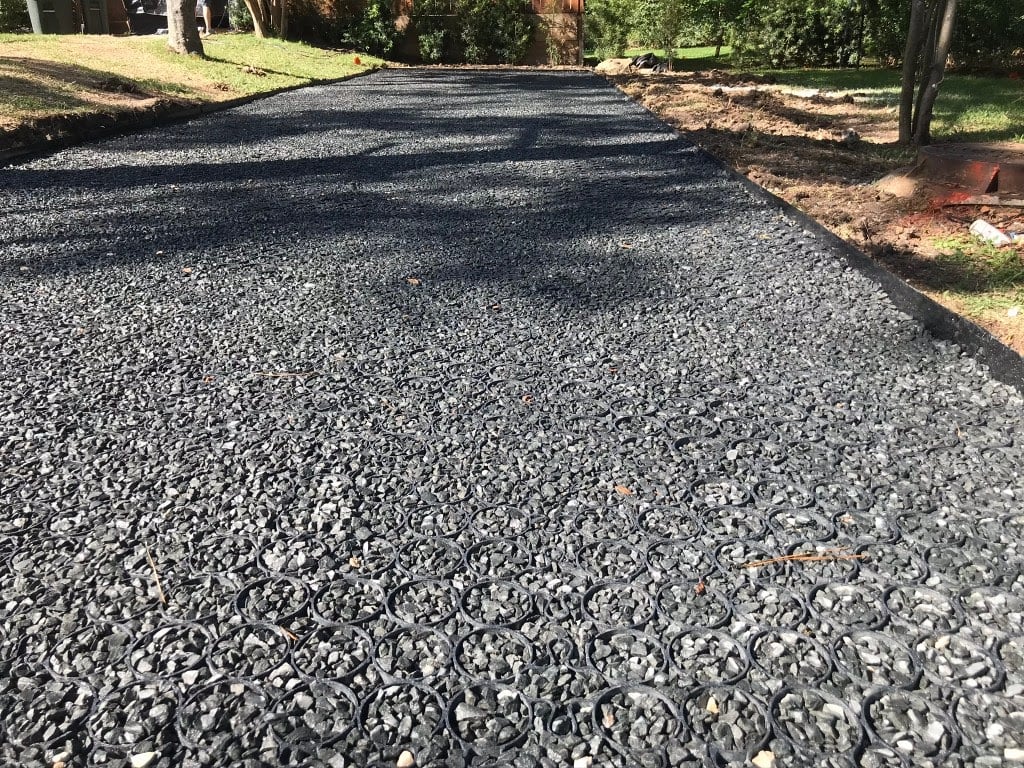Driveway Stone Servicesin Romeo MI
Durable Driveway Stones for a Beautiful and Functional Entrance
We Are Locally Owned & Operated For Over 37 Years
Contact Us Today!
We Serve Businesses In And Around The Following Cities:
About Driveway Stone Services
Introduction
Driveway stones are an essential part of any commercial property landscape, imparting an aesthetic appeal while ensuring the durability and longevity of the premises. In the lovely city of Romeo, one can see a wide variety of driveway stones being utilized to enhance the functionality and curb appeal of commercial enterprises. With exceptional benefits and real-world applications, driveway stones have emerged as a prudent choice for businesses seeking to create resilient and lasting impressions.
Discovering The Versatility Of Driveway Stones
Let’s embark on the pathway to understanding the extensive versatility of driveway stones. Whether it’s robust “driveway rock”, an elegant “pebble driveway”, or perhaps a “crushed rock driveway”, each of these options can uniquely boost the aesthetic value and structural strength of the property. Driveway stone alternatives like crushed cement driveway are also increasingly adopted for their cost-effectiveness and easy installation.
When businesses are under renovation or construction, temporary driveways come into play. These temporary construction driveways justify their name by being short-term, cost-efficient, and easily removable solutions, thereby facilitating a smoother construction process. An informed decision about the best choice of driveway stones can lead to remarkable results in the overall design and functionality of the property.
The Driveway Stones Installation Process
The installation of driveway stones may appear daunting but can be seamlessly executed by professional contractors. Localized to Romeo, a company like D&J Contracting can tailor this process to the specific needs of the business, taking into account budget, timeline, and aesthetic desires.
The installation generally involves the placement of the chosen drive stones after an appropriate ground preparation process. Crushed stone driveway contractors ensure drainage planning and driveway drain pipe installation to safeguard the property against water damage.
Unraveling the Benefits of Driveway Stones
Businesses can derive immense benefits from incorporating driveway stones in their outdoors. Apart from magnifying the aesthetic allure, these elements increase the lifespan of the property, resist erosion and occurences of puddles, while enhancing permeability. This sustainable solution harmonizes beauty and resilience in a sophisticated manner, making it an irresistible choice.
Driveway stones can be customized to fit specific needs. With options for crushed stone driveway, crushed aggregate driveway or rock for driveway near me offerings, businesses can choose elements that resonate most with their brand image and functionality requirements. Businesses can also explore permeable driveway contractors near me for solutions that can blend well with their sustainability goals.
From Theory To Practice: Real-world Driveway Stone Applications
Let’s explore instances of businesses in Romeo that have successfully assimilated driveway stones into their layout. A local hotel leveraged the expertise of D&J Contracting for the creation of a permeable driveway. The result was an impressive blend of aesthetics, functionality, & weather resistance, much appreciated by staff and guests.
In another example, a dealership utilized crushed aggregate driveway installation from D&J Contracting. This transformed their access pathway into something equally pleasing to the eyes and strong enough to withstand heavy vehicular traffic.
Conclusion
Driveway stones integrate structural strength with aesthetic appeal, brilliantly uplifting the outdoor space of a commercial property. Businesses are increasingly comprehending the efficiency, flexibility, and visual charm of these options, resulting in a heightened inclination towards their use. A professional driveway stones contractor like D&J Contracting is an excellent resource for any commercial business in Romeo looking to enhance the exterior of their property with stunning and enduring driveway stone options. Indeed, stepping ahead with stones can lead businesses towards the pathway of creating an indelible impression.
Driveway Stone Services Gallery


Call Us Today to receive your Free Quote for
Driveway Stones in Romeo
Serving: Romeo, Michigan

About Romeo, Michigan
A settlement here was originally occupied by the indigenous Chippewa (Ojibwe), an Algonquian-speaking people who were part of a large language family of tribes extending to the Atlantic Coast. Those tribes around the Great Lakes are thought to have migrated to this area by the 12th century.
The early European-American settlers in this area referred to the Chippewa settlement as “Indian Village”. In the 1820s and 1830s more migrant European-American families began to settle in the area, building homes and establishing businesses. They renamed the community “Hoxie’s Settlement”, after a man who opened an inn on Main Street. In 1839, Hoxie’s Settlement became incorporated and was renamed as the village of Romeo. The name was suggested by the wife of local merchant Nathaniel Taylor because it was “short, musical, classical and uncommon.” Romeo celebrated its 175th anniversary on March 9, 2013.
Romeo once served as a trading center for the timber industry, and had many mills processing lumber from the region. Many wealthy timber families resided there. Dozens of stately Victorian mansions survive. Romeo is distinct in the area for having a fairly robust, traditional downtown, which has never suffered a major fire. Because of this, some stores and restaurants downtown have features such as original tin ceilings from the Civil War. In the early 20th century, Romeo was the site of an early business devoted to the new automobile industry: the Detroit Auto Vehicle Company operated here from 1904 until 1908.
The village is in northwestern Macomb County, situated at the southeast corner of Bruce Township, with a portion extending south into Washington Township. Armada Township is adjacent to the east and Ray Township to the southeast. M-53 passes through the east side of the village, leading north 16 miles (26 km) to Imlay City and south 30 miles (48 km) to the eastern side of Detroit.
According to the United States Census Bureau, the village of Romeo has a total area of 2.05 square miles (5.31 km), of which 0.002 square miles (0.005 km), or 0.10%, are water. East Pond Creek crosses the easternmost part of the village, flowing east to the North Branch of the Clinton River, part of the Lake St. Clair watershed.
| Census | Pop. | Note | %± |
|---|---|---|---|
| 1850 | 330 | — | |
| 1880 | 1,629 | — | |
| 1890 | 1,637 | 0.5% | |
| 1900 | 1,580 | −3.5% | |
| 1910 | 1,787 | 13.1% | |
| 1920 | 2,102 | 17.6% | |
| 1930 | 2,283 | 8.6% | |
| 1940 | 2,627 | 15.1% | |
| 1950 | 2,985 | 13.6% | |
| 1960 | 3,327 | 11.5% | |
| 1970 | 4,012 | 20.6% | |
| 1980 | 3,509 | −12.5% | |
| 1990 | 3,520 | 0.3% | |
| 2000 | 3,721 | 5.7% | |
| 2010 | 3,596 | −3.4% | |
| 2020 | 3,767 | 4.8% | |
| U.S. Decennial Census | |||
As of the census of 2010, there were 3,596 people, 1,501 households, and 979 families residing in the village. The population density was 1,780.2 inhabitants per square mile (687.3/km). There were 1,659 housing units at an average density of 821.3 per square mile (317.1/km). The racial makeup of the village was 91.9% White, 3.8% African American, 0.2% Native American, 0.5% Asian, 1.1% from other races, and 2.6% from two or more races. Hispanic or Latino people of any race were 5.7% of the population.
There were 1,501 households, of which 32.2% had children under the age of 18 living with them, 46.2% were married couples living together, 14.9% had a female householder with no husband present, 4.1% had a male householder with no wife present, and 34.8% were non-families. 30.8% of all households were made up of individuals, and 13.6% had someone living alone who was 65 years of age or older. The average household size was 2.36 and the average family size was 2.96.
The median age in the village was 40.9 years. 23.5% of residents were under the age of 18; 7.7% were between the ages of 18 and 24; 24.1% were from 25 to 44; 29.4% were from 45 to 64; and 15.3% were 65 years of age or older. The gender makeup of the village was 46.4% male and 53.6% female.
As of the census of 2000, there were 3,721 people, 1,528 households, and 993 families residing in the village. The population density was 1,842.8 inhabitants per square mile (711.5/km). There were 1,605 housing units at an average density of 794.9 per square mile (306.9/km). The racial makeup of the village was 92.66% White, 4.35% African American, 0.16% Native American, 0.40% Asian, 0.11% Pacific Islander, 0.67% from other races, and 1.64% from two or more races. Hispanic or Latino people of any race were 2.74% of the population.
There were 1,528 households, out of which 33.3% had children under the age of 18 living with them, 48.2% were married couples living together, 13.5% had a female householder with no husband present, and 35.0% were non-families. 31.3% of all households were made up of individuals, and 13.2% had someone living alone who was 65 years of age or older. The average household size was 2.40 and the average family size was 3.04.
In the village, the population was spread out, with 26.1% under the age of 18, 8.2% from 18 to 24, 30.1% from 25 to 44, 21.4% from 45 to 64, and 14.2% who were 65 years of age or older. The median age was 36 years. For every 100 females, there were 87.2 males. For every 100 females age 18 and over, there were 82.5 males.
The median income for a household in the village was $48,015, and the median income for a family was $60,179. Males had a median income of $51,875 versus $27,696 for females. The per capita income for the village was $22,588. About 3.2% of families and 3.9% of the population were below the poverty line, including 6.5% of those under age 18 and 3.9% of those age 65 or over.
The government of the village of Romeo consists of elected and appointed officials. The elected officials include six council members, one president, treasurer and clerk. The appointed officials include the Chief of Police, Department of Public Works Director, and Village Administrator. Currently, the elected clerk also holds the appointed position of Village Administrator. The day-to-day operations of the village are handled by the Clerk/Administrator.
Since the turn of the 21st century, Romeo has worked to upgrade its infrastructure. It has improved the streetscape on Van Dyke Avenue, the main road through the village, and installed a new water tower. It had earlier established one of the few wastewater treatment plants in the region. While most of the metropolitan region receives water and sewage service from the City of Detroit, Romeo independently sustains its own supply of water and manages treatment of village sewage. This was especially valuable during the blackout that occurred throughout the entire northeastern United States on August 14, 2003. Romeo was one of the few areas in the Detroit metropolitan area to have clean running water. More recent infrastructure improvements include a complete renovation of the village water system, and replacement of all the sidewalks throughout the village.
Call Us Today to receive your Free Quote for
Driveway Stones in Romeo
Related Services in Romeo, Michigan
We Serve Businesses In The Following Zip Codes:
48007, 48015, 48021, 48026, 48035, 48036, 48038, 48042, 48043, 48044, 48045, 48046, 48047, 48048, 48050, 48051, 48066, 48071, 48080, 48081, 48082, 48083, 48084, 48085, 48088, 48089, 48090, 48091, 48092, 48093, 48098, 48099, 48225, 48230, 48236, 48310, 48311, 48312, 48313, 48314, 48315, 48316, 48317, 48318, 48397